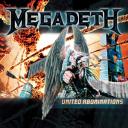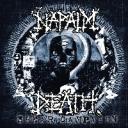
Now I am the Master: what MMOs can teach table top RPGs
July 9, 2008There is a downside to playing two MMOs and trying to write a Warhammer Fantasy Roleplay campaign, that is having very little time to do anything else fun. Hence the length of time that has passed between this post and the last one, which I believe was some time back in, er, March. There was also the small issue of getting married and going on holiday and all the organisation that entailed.
Anyway, I’d heard a while back that the D&D 4th edition was flirting with some online elements, which, according to the official site, includes the opportunity to actually play online as well as more predictable features like character visualisation, character records and access to the rules. This video below show’s you the kinds of things you can get up to with it.
Although I haven’t tried out the 4th ed rules myself, judging from the reviews it isn’t only the digital features that demonstrate the influence MMOs have had on this version of the game. According to reviews, both positive and negative, it’s borrowed a lot of the core concepts that characterise MMOs, well at least those of the WoW-mold anyway, such as the Tank, Healer, DPs trinity, metagaming and character optimisation. Understandably this has raised the ‘roleplaying’ question, does the MMO influence preclude character personality or can they live together side by side? I can’t really get a sense of just how much room there is for genuine role-playing in the rules, the reviews hint at very little in the way of guidance for this element, but I do think WotC have taken an interesting approach to tabel top role playing all the same. Whether or not it will actually bring in the MMO crowd or not is probably down to the way it’s marketed as much as it is down to the system and that I can’t comment on.
The reason I bring D&D 4th ed up is that I plan on using a few MMO mechanics in the WFRP campaign I’m about to start running. Unlike D&D 4th ed, however I’m going to try and use them to enhance and reward the role-playing experience. One thing about WFRP is that combat plays a relatively minor part of the game (or at least it does in mine), so alot of the time players are interacting with NPCs or with their environment which in many cases can feel a lot less satisfying than ‘killing the bad guys’. All RPGs, as far as I;m aware, reward xp to players for ‘good roleplaying’ but this is usually a general reward given at the end of a session or adventure as opposed to xp given for specific examples of good roleplay. Also, it isn’t usually specified what good roleplay constitutes, which while giving GMs flexibility can leave players confused about what they should be trying to acheive.
I was quite inspired by this discussion about character motivations on the Fantasy Flight WFRP forums. Part of the difficulty players face when roleplaying in RPGs is not being clear about what their motivations are or how they tie into their personal history. I don’t ever think that a character’s motivation should simply be about survival or making money, these should be means to an end, rather than an end in itself. I asked my players to come up with rough background ideas for their character’s which I then elaborated. This has the added benefit of allowing me, as GM, to bring their own histories into play as storylines in themselves. For example the PCs meet because they are looking to solve their own personal tragedies. I know some WFRP GMs like to make their player’s characters to be expendable, but I beleive they should sit at the heart of the story, that way they feel less like chess pieces, which is another problem that tends to arise with gritty realistic RPG settingsd more like they have, and more like they have some influence on the world they’re in .
The players have clear motivations, tied to objectives they want to acheive, meaning that it’s easy to hand out xp for acting in a way that’s relevant to these objectives. I’ve given them a helping hand by writing down four or five behaviours that will be rewarded with a range of xp in the range of 5-10 points. This xp will be handed out during the game and hopefully the players will feel a sense of progression and at the same time be encouraged to do it more frequently. On the other hand other xp rewards will be tuned down so as to prevent the PCS advancing too quickly. My first concern is that this might break the immersion experience, but I’m hoping it will be no more noticeable than dice rolling. My second concern is that my players turn into a bunch of RP power gamers, using every opportunity they can to grab xp through elaborate roleplaying, which ti be fair could be a lot of fun.
The other thing I’m planning on adding to my campaigns are mini-games. The ‘analogue’ nature of RPGs, especially when miniatures aren’t used, can make some GM decisions seem rather arbitrary, whereas mini-games allow for a degree of formal structure without it dominating the entire experience. The example I’m using in the scenario I’m currently writing uses a snake and ladders concept in a chase scene. The PCs can still use their abilities to overcome certain obstacles, but there are general rules that affect all players.
The benefit of these mechanics is that players feel like they’re getting a continuous stream of concrete rewards for playing the game the way I feel it should be played, which I hope will encourage them ti try harder to play it that way and also get them more deeply emotionally engaged in the campaign. Once it gets going I’ll let you know how it goes.


Leave a comment